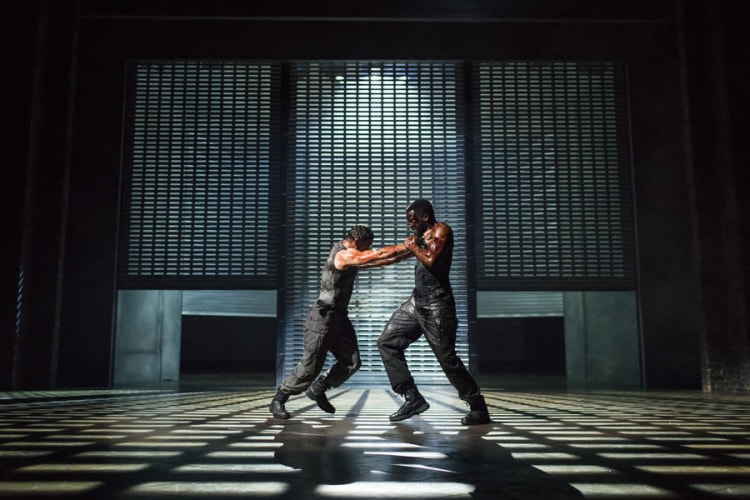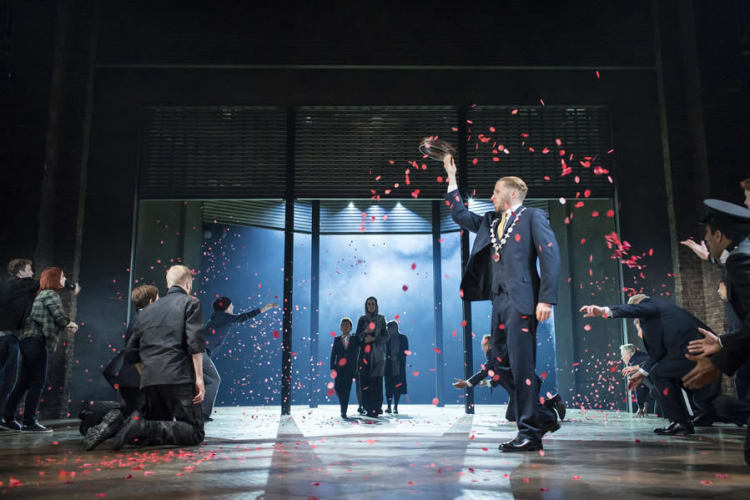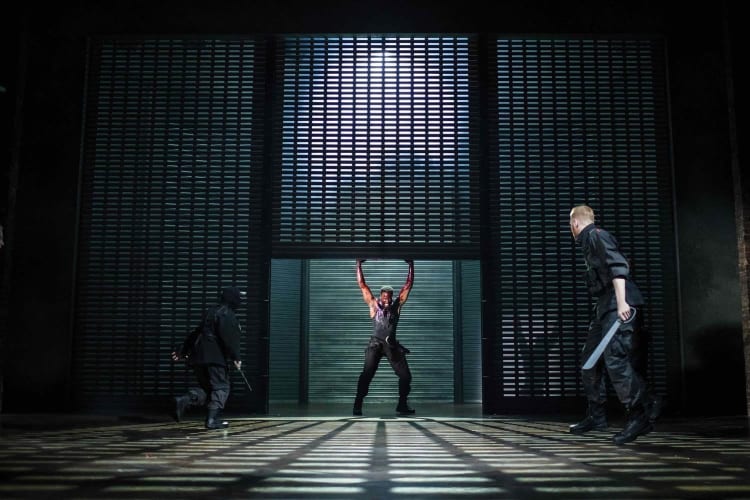The forklift vehicle that sits silently on the stage welcoming visitors gives a clue as to the nature of Angus Jackson’s three-hour-long interpretation of the first play in the Rome MMXVII (2017 for the uninitiated) Season of plays from the RSC, first presented in Stratford-upon-Avon.
This is a very modern interpretation of a Roman tragedy that goes into colour- and gender-blind casting and uses a 400-year-old play to shine a light on events in the world today.
The protesting populace of the opening scene will immediately bring to mind events in London, New York and most recently Barcelona as the patrician status quo has been challenged and threatened by the plebeian masses.
On minimally adorned sets, the imposing Sope Dirisu represents a heavily bearded Caius Martius, later Coriolanus, as the kind of warrior statesman who might be far more at home in a boxing gym than a Senate.
From the outset, despite his triumphs on the battlefield, this is a man who lacks humility and has barely a political bone in his body, happier to have his own way than worry about bringing friends, colleagues or most importantly the people along with him.
This makes life difficult for a backup team that is led by a powerful mother, Haydn Gwynne as Volumnia, and the significantly more diplomatic Menenius played by Paul Jesson, a man who does his best to keep the peace even when this is impossible, which is most of the time.
Having initially won the trust of the baseball bat-wielding Roman populace, Coriolanus soon loses their support largely due to the efforts of two female senators, Martina Laird as Junius Brutus and the triumphantly vengeful Sicinius Veletus, Jackie Morrison.
While all is going to pot in Rome, life is little more comfortable with the hero’s sworn enemy of old, James Corrigan as the Volscian leader Tullus Aufidius.
Although the two battle-scarred hard men can respect each other up to a point, after Coriolanus loses the confidence of his own people, attempting to formulate an alliance with someone whose life you have tried to take on the battlefield presents equally insurmountable problems.
The modern setting is not entirely coherent but makes this lively production more accessible, turning Roman politics into those of our own time and getting a nice edgy feel thanks to the Michael Nyman-like compositions of Mira Calix, played by a string quartet with supporting keyboards and the haunting voice of Alexandra Ferrari.
Coriolanus is never likely to be one of Shakespeare’s most popular plays but this multicultural, gender-blended vision is one of the better attempts to popularise the work in recent times.


